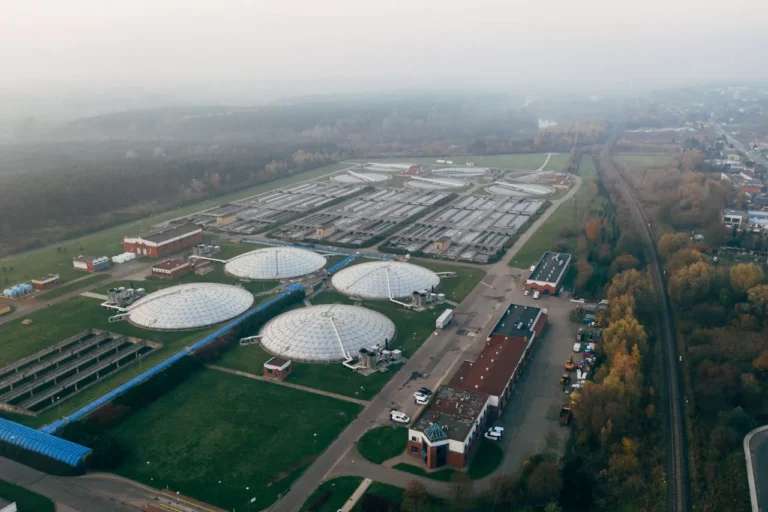
Australia Pushes for Country-Specific Carbon Rating to Boost Canola Competitiveness
Australia’s canola industry is calling for a national carbon intensity (CI) rating to ensure local growers are not disadvantaged under the global Carbon Offsetting and Reduction Scheme for International Aviation (Corsia). The proposal, discussed at the Australia Oilseeds Forum, reflects growing concern that the current global carbon accounting system fails to recognise Australia’s lower-emission production practices.

A push for fairer treatment under global carbon schemes
Australian canola is currently grouped under a global category within the International Sustainability and Carbon Certification’s (ISCC) Carbon Footprint Certification (CFC). The ISCC’s voluntary scheme assesses greenhouse gas (GHG) emissions from biofuel feedstocks, including canola oil, to demonstrate compliance with Corsia and the European Union’s Renewable Energy Directive (RED). These frameworks are crucial for producers of sustainable aviation fuel (SAF) and renewable diesel, determining whether their products meet lifecycle emissions reduction targets.
Under ISCC’s default lifecycle assessment (LCA) for Corsia, SAF made from canola oil carries a baseline emissions intensity of 47.4 grams of CO₂ equivalent per megajoule (g CO₂e/MJ). To this figure, the ISCC applies an additional indirect land-use change (ILUC) penalty — 24.1g CO₂e/MJ for European Union (EU)-sourced canola and 26g CO₂e/MJ for all other regions, including Australia. The ILUC factor estimates the carbon impact of potential land-use changes, such as deforestation, that might result from expanding agricultural production to meet growing demand for biofuels.
The impact of ILUC penalties
While Corsia requires SAF to achieve at least a 10 per cent reduction in lifecycle GHG emissions compared with conventional jet fuel, the default ILUC penalties significantly affect competitiveness. Using ISCC default values, SAF made from EU-sourced rapeseed oil achieves a 19.7 per cent reduction, while SAF from non-EU canola — including Australian — achieves only a 17.5 per cent reduction.
Although both meet Corsia’s minimum threshold, fuels with lower CI scores are more valuable in the market, as they allow airlines and fuel suppliers to demonstrate greater overall emissions savings. A lower ILUC penalty for Australian canola could therefore enhance its competitiveness in the global SAF market, potentially securing higher prices and greater demand.
“Expensive” penalty for Australian growers
At the Australia Oilseeds Forum on 21 October, a representative from GrainCorp described the ILUC penalty as “expensive” and unfair to Australian growers, who have cultivated canola on largely unchanged farmland since the crop was first grown commercially in the 1970s. Unlike many other producing regions, Australian growers typically make conservative use of fertiliser, a key driver of agricultural emissions.
“Australia doesn’t fit the model that ISCC assumes for other regions,” the presenter said. “We’re not clearing land for new production, and our fertiliser use is already efficient. Yet we’re being penalised as if we are.”
The absence of an Australia-specific ILUC value stems from ISCC’s prioritisation of regions with high biofuel trade volumes, such as the EU, US, Brazil, Malaysia and Indonesia. Industry stakeholders argue that recognising Australia’s distinct production conditions could improve market access, enhance price competitiveness and accelerate the country’s agricultural decarbonisation goals.
Low-emission profile backed by science
The Commonwealth Scientific and Industrial Research Organisation (CSIRO) has found that Australian canola typically has some of the lowest emissions of any major exporting nation. Most Australian canola is rain-fed rather than irrigated, reducing energy use and associated emissions. The country’s dry climate also limits soil nitrous oxide emissions — a potent greenhouse gas — from fertiliser application compared with wetter regions.
According to CSIRO, Australian canola retains a low enough carbon footprint that, even after accounting for shipping and refining, it can still meet Europe’s target emissions savings of 50–60 per cent for biofuels. The organisation’s data indicate that Australian canola seed carries an average carbon footprint of about 0.468 tonnes of CO₂e per tonne of seed, compared with 0.73t CO₂e for EU rapeseed, according to ISCC data. Canadian canola, depending on growing conditions, ranges from 0.365–0.488t CO₂e, based on data from the Canola Council of Canada. These values exclude emissions from indirect land-use change.
Market dynamics and SAF policy constraints
Despite these advantages, Australian canola’s pathway into the SAF market faces headwinds from policy restrictions in key jurisdictions. The European Union’s ReFuelEU Aviation Directive, which currently includes the only operational SAF blending mandate — set at 2 per cent in 2025 — explicitly excludes crop-based feedstocks such as canola oil. Instead, it incentivises the use of “advanced” feedstocks, which are non-food, waste-derived, or capable of growing on degraded land. SAF produced from such feedstocks can be double-counted toward renewable fuel targets, offering a stronger commercial incentive.
This limitation means Australian canola’s potential contribution to EU SAF demand is capped, even if its CI score improves. Nonetheless, a lower CI rating could help Australian canola producers secure stronger positions in other markets, including Asia and emerging voluntary carbon schemes linked to aviation.
Exploring next-generation oilseeds
In response to these constraints, several Australian biofuel developers are exploring alternative oilseed crops that qualify as advanced feedstocks under the ReFuelEU directive. Oil major BP is trialling carinata, a non-food oilseed similar to canola but grown as a cover crop between main rotations. Carinata has a low carbon intensity of just 21.7g CO₂e/MJ and could potentially receive a negative ILUC value, as it improves soil health and does not displace food crops.
Other companies, including Australian bioenergy developer Jet Zero, are investigating pongamia, a hardy leguminous tree that produces an oil suitable for conversion into SAF. Pongamia is not yet approved under the ISCC framework but is valued for its carbon-sequestering properties and its ability to thrive on degraded land, potentially qualifying it as an advanced feedstock in the future.
A strategic opportunity
Industry advocates argue that Australia’s canola sector is well-positioned to play a key role in global decarbonisation if given fair recognition under international carbon accounting systems. Introducing a country-specific CI rating — or reducing the ILUC penalty to reflect Australia’s low-emission production — could deliver multiple benefits: greater competitiveness for Australian canola, higher farmgate returns, and stronger incentives for sustainable practices.
As the global aviation sector accelerates its transition to SAF, accurate and regionally nuanced emissions accounting will be critical. For Australia’s canola growers, achieving recognition for their low-carbon credentials could determine whether they remain price-takers in a global market — or become premium suppliers in the emerging low-emission fuel economy.
Source Link : https://www.argusmedia.com/







